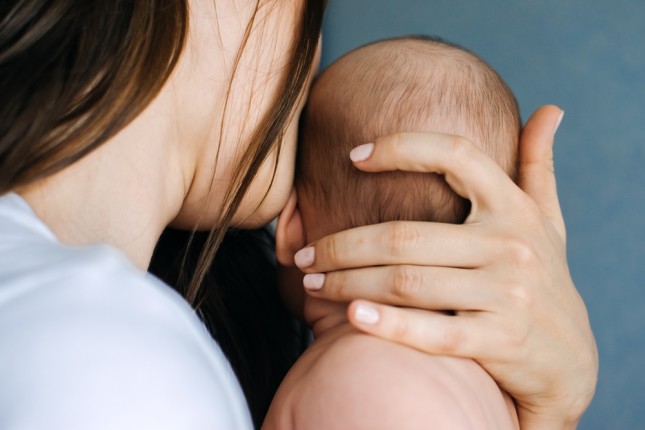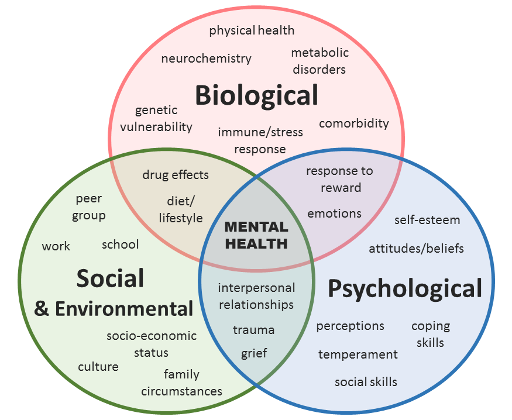-
The U.S. Maternal Mental Health Crisis: Causes and Potential Remedies
July 12, 2023 By Adrienne Griffen
The United States is in the midst of a maternal mental health crisis. Not only are mental health conditions the most common complication of pregnancy and childbirth, but they are also the leading cause of maternal mortality. Each year, 800,000 families in the United States will be impacted by maternal mental health (MMH) conditions—and 225 new mothers will die by suicide or overdose.
What has led to this crisis? And—more importantly—what is being done to address it?
The Scope of the Problem
Mental health conditions (including anxiety, depression, OCD, PTSD, bipolar illness, psychosis, and substance use disorder) impact 1 in 5 pregnant or postpartum people each year in the United States. The vast majority of those experiencing MMH conditions (75 percent) remain untreated, increasing the risk of long-term two-generational negative impact on mother and baby. This crisis is also costing our country $14 billion each year in poor birth and health outcomes, as well as lost wages and productivity.
Tragically, mental health conditions also are the leading cause of maternal mortality, accounting for almost 25 percent of maternal deaths. The scope of the problem is such that the nation’s families are sharing their stories, encouraging more conversation about the crisis, and screening in the hopes of saving lives. A number of families are also sharing their experiences with postpartum psychosis, which is the most severe MMH condition. This illness impacts between 4,000 and 8,000 childbearing people each year, increasing both the risk of infanticide and suicide.

Making Maternal Mental Health a National Priority
My organization – Maternal Mental Health Leadership Alliance (MMHLA)—has led the passage of federal legislation that will provide $200 million in funding for two MMH programs:
- The National Maternal Mental Health Hotline—which provides 24/7 voice and text support in English and Spanish. This hotline has assisted over 12,000 help-seekers within the first year of operations.
- Federal grants to states which have been used to create psychiatry access programs that provide training, education, and real-time psychiatric support to obstetric and pediatric providers to treat MMH conditions.
In June 2022, the White House issued a Blueprint for Addressing the Maternal Health Crisis which calls for establishing a national MMH task force and strategy. This plan also called for the launch of a national MMH public awareness campaign, as well as seeking to strengthen supports and access to perinatal addiction services for individuals with substance use disorders.
Two healthcare provisions created during the COVID-19 pandemic also helped address MMH. First, many states extended pregnancy-related Medicaid coverage from 60 days to a full year postpartum to ensure that low-income individuals could retain access to healthcare following childbirth. Second, expanded access to mental telehealth visits removed logistical barriers, such as childcare and transportation, that many new parents face.
Other institutions have helped the cause as well. Both the United States Preventive Services Task Force and the American College of Obstetricians and Gynecologists recently updated their recommendations regarding screening for anxiety and depression during pregnancy and postpartum. The American Academy of Pediatrics also recommends screening for MMH conditions—and Medicaid reimburses pediatricians for such screening.
To synthesize these and other screening recommendations, MMHLA has launched a multi-year collaborative effort that works to address barriers to screening, including educating frontline providers, offering reimbursement for these activities, and ensuring adequate resources for those impacted by MMH conditions.
What More Can (and Should) Be Done?
Leveraging Medicaid—which covers 40 percent of births in the United States—offers the greatest additional opportunity to “move the needle” on MMH conditions and to encourage private insurers to follow suit. Our policy recommendations to do so include:
- Extending pregnancy-related Medicaid coverage for a full year in all states, which will bring a full year of postpartum health coverage to an estimated 720,000 additional people. We also would make this change permanent, rather than the current five-year limit.
- Reimbursing obstetric providers for screening and treating MMH conditions.
- Expanding access to—and reimbursement for—midwives and doulas, both of whom have been proven effective at improving birth outcomes.
We also advocate that education about MMH conditions should be incorporated into educational curricula for all health care and mental health providers who interact with childbearing individuals. This would include obstetric, pediatric, and psychiatric providers at all levels (including doctors, midwives, physician assistants, nurses, and therapists).
Congress also has a further role to play in addressing the crisis, and legislators should take the following steps:
- Pass the Preventing Maternal Deaths Act to continue funding maternal mortality review committees to examine all deaths that occur during and following pregnancy.
- Continue funding perinatal quality collaboratives that work to prevent maternal deaths.
- Pass the Moms Matter Act to address MMH disparities by investing in community-based organizations and growing and diversifying the MMH workforce.
- Increase funding so all states can establish perinatal psychiatry access programs.
- Increase funding for the National MMH Hotline to support military members and their dependents, and to create a national consultation line for providers.
All the steps described above are a down payment to make progress on the maternal mental health issues that have become a crisis. Federally-funded clinics – such as certified community behavioral health clinics, federally-qualified health centers, and rural health clinics – should be required to have clinicians certified in perinatal mental health. The establishment of a national Maternal Mental Health Center of Excellence might coordinate all these efforts and ensure robust and coordinated systems of care are implemented and integrated.
The United States could aim to have programs that are on a par with England, where all new parents are eligible to receive free home visits from nurses, have access to a nationwide network of in-patient mother-baby psychiatric units, and receive mental health treatment for crimes committed if experiencing postpartum psychosis rather than prison sentences (as stipulated in the Infanticide Act of 1938).
The United States MUST address this crisis. Maternal mental health conditions are temporary, treatable, and preventable. Our nation must prioritize the mental health and wellbeing of our nation’s mothers, because mothers are the heart and soul of the family and of society.
Adrienne Griffen is the Executive Director of Maternal Mental Health Leadership Alliance, a national nonprofit focused on policy and advocacy for maternal mental health.
Sources: ABC News; Acta Endocrinologica; American Academy of Pediatrics; American College of Obstetricians and Gynecologists; APP; Best Practice & Research: Clinical Obstetrics & Gynaecology; Bipartisan Policy Center; CBS News; CDC; Health Resources & Services Administration; Indian Journal of Psychological Medicine; KFF; March of Dimes; MMHLA; NASHP; NICHQ; Obstetrics & Gynaecology; Postpartum Support International; Psychiatric Services; UK Health Security Agency; UK Parliament; UMass Chan Medical School; U.S. Congress; U.S. Preventive Services Task Force; White House Press Office.
Photo Credit: Portrait of mother and newborn baby. Iryna Imago/Shutterstock.com
 A Publication of the Stimson Center.
A Publication of the Stimson Center.




